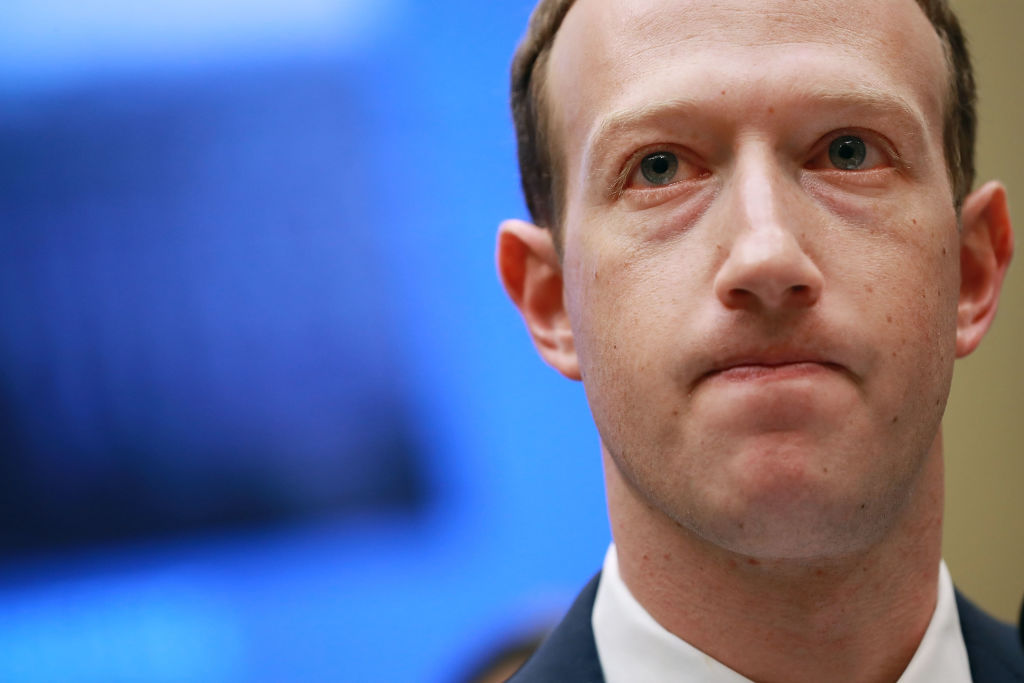The daily business briefing: June 6, 2018
Facebook admits giving Chinese tech companies data access, Mexico imposes tariffs to retaliate against Trump levies, and more


1. Facebook admits giving Chinese companies data access
Facebook announced Tuesday that it has data-partnership agreements with at least four Chinese electronics companies, including Huawei, a telecommunications equipment company flagged as a security threat due to its close ties with the Chinese government. In addition to Huawei, the companies Lenovo, Oppo, and TCL have private access to Facebook user data like work and education history, relationship status, and likes. In 2007, before its app worked well on phones, Facebook wanted to get more people to use the social network, and the company made agreements with these Chinese device makers so they could offer select Facebook features, like status updates, on their phones. Facebook told The New York Times that it is ending its partnership with Huawei by the end of the week.
2. Mexico follows through on threat to retaliate with tariffs
Mexico imposed tariffs Tuesday on about $3 billion worth of U.S. goods including pork, whiskey, and cheese, in retaliation for President Trump's levies on imported steel and aluminum. Trump's tariffs escalated tensions between the U.S. and numerous allies just as the U.S., Mexico, and Canada were making a push to revise the North American Free Trade Agreement, which Trump has called a bad deal for America. Trump's chief economic adviser, Larry Kudlow, said that Trump's "preference now, and he asked me to convey this, is to actually negotiate with Mexico and Canada separately." Kudlow said on Fox & Friends that handling the negotiations that way would speed things up. "You know," he said, "NAFTA has kind of dragged on."
The Week
Escape your echo chamber. Get the facts behind the news, plus analysis from multiple perspectives.

Sign up for The Week's Free Newsletters
From our morning news briefing to a weekly Good News Newsletter, get the best of The Week delivered directly to your inbox.
From our morning news briefing to a weekly Good News Newsletter, get the best of The Week delivered directly to your inbox.
3. China's ZTE reaches tentative deal to end U.S. ban
Chinese telecom company ZTE has signed a preliminary deal that would lift a U.S. ban on buying from U.S. suppliers, which would let the company resume operations, Reuters reported Tuesday, citing sources familiar with the matter. ZTE ceased most of its operations after the Commerce Department imposed the seven-year ban in April to punish the smartphone maker for breaking a 2017 settlement after it was caught illegally shipping goods to Iran and North Korea. ZTE would pay a $1 billion fine under the tentative deal, with another $400 million placed into escrow to cover any future violations, Reuters explained. ZTE already paid $361 million under the original agreement. The company did not immediately comment.
4. U.S. services sector makes May gains
The U.S. services sector saw an increase in activity in May, ending three months of declines and telegraphing healthy economic growth in the second quarter. The Institute for Supply Management said Tuesday that its non-manufacturing activity index jumped by 1.8 points to 58.6. Any reading above 50 indicates growth. Other data showed job openings outpacing hiring and reaching a record high in April. The shortage of workers and looming battles over tariffs threatened to weigh down trade at some point, however. "Whatever speed the economy is growing at, it isn't going to keep moving down the road much longer if there is no one to work the economy's factories and stores and warehouse floors," MUFG chief economist Chris Rupkey said.
A free daily email with the biggest news stories of the day – and the best features from TheWeek.com
5. Fashion designer Kate Spade dies in apparent suicide
Fashion designer Kate Spade was found dead in her Manhattan apartment Tuesday, hanged with a scarf in her bedroom in an apparent suicide. She was 55. Police said Spade left a note but they would not discuss what it said. TMZ reported that the note was addressed to her 13-year-old daughter. Spade's handbags became a symbol of status and good taste when she emerged in the 1990s, and became the foundation of an accessories empire. "Kate Spade had an enviable gift for understanding exactly what women the world over wanted to carry," said Anna Wintour, the editor-in-chief of Vogue and artistic director of Condé Nast. "There was a moment when you couldn't walk a block in New York without seeing one of her bags, which were just like her; colorful and unpretentious."
Harold Maass is a contributing editor at The Week. He has been writing for The Week since the 2001 debut of the U.S. print edition and served as editor of TheWeek.com when it launched in 2008. Harold started his career as a newspaper reporter in South Florida and Haiti. He has previously worked for a variety of news outlets, including The Miami Herald, ABC News and Fox News, and for several years wrote a daily roundup of financial news for The Week and Yahoo Finance.
-
 Political cartoons for December 13
Political cartoons for December 13Cartoons Saturday's political cartoons include saving healthcare, the affordability crisis, and more
-
 Farage’s £9m windfall: will it smooth his path to power?
Farage’s £9m windfall: will it smooth his path to power?In Depth The record donation has come amidst rumours of collaboration with the Conservatives and allegations of racism in Farage's school days
-
 The issue dividing Israel: ultra-Orthodox draft dodgers
The issue dividing Israel: ultra-Orthodox draft dodgersIn the Spotlight A new bill has solidified the community’s ‘draft evasion’ stance, with this issue becoming the country’s ‘greatest internal security threat’
-
 Femicide: Italy’s newest crime
Femicide: Italy’s newest crimeThe Explainer Landmark law to criminalise murder of a woman as an ‘act of hatred’ or ‘subjugation’ but critics say Italy is still deeply patriarchal
-
 Brazil’s Bolsonaro behind bars after appeals run out
Brazil’s Bolsonaro behind bars after appeals run outSpeed Read He will serve 27 years in prison
-
 Americans traveling abroad face renewed criticism in the Trump era
Americans traveling abroad face renewed criticism in the Trump eraThe Explainer Some of Trump’s behavior has Americans being questioned
-
 Nigeria confused by Trump invasion threat
Nigeria confused by Trump invasion threatSpeed Read Trump has claimed the country is persecuting Christians
-
 Sanae Takaichi: Japan’s Iron Lady set to be the country’s first woman prime minister
Sanae Takaichi: Japan’s Iron Lady set to be the country’s first woman prime ministerIn the Spotlight Takaichi is a member of Japan’s conservative, nationalist Liberal Democratic Party
-
 Russia is ‘helping China’ prepare for an invasion of Taiwan
Russia is ‘helping China’ prepare for an invasion of TaiwanIn the Spotlight Russia is reportedly allowing China access to military training
-
 Interpol arrests hundreds in Africa-wide sextortion crackdown
Interpol arrests hundreds in Africa-wide sextortion crackdownIN THE SPOTLIGHT A series of stings disrupts major cybercrime operations as law enforcement estimates millions in losses from schemes designed to prey on lonely users
-
 China is silently expanding its influence in American cities
China is silently expanding its influence in American citiesUnder the Radar New York City and San Francisco, among others, have reportedly been targeted
